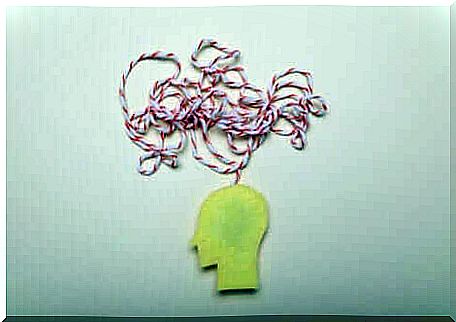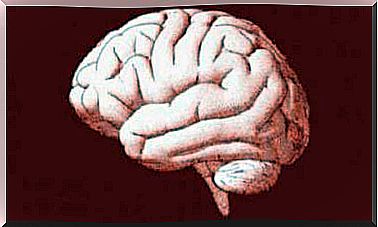Thought (overthinking), A Cognitive Disorder

Thought drive is a cognitive disorder in which thoughts and ideas go from one to the other in quick succession, without giving any apparent meaning. This abnormality tends to go hand in hand with a change in the person’s speech, which reflects the hectic mindset.
Having a thought process is a typical symptom of a manic state, where the person experiences high levels of tension, emotion and energy. This condition is a common part of bipolar disorder. However, it can also be part of other problems or even appear alone.
That said, the most obvious aspect of mindfulness is an increase in the speed and rhythm of thought. However, this actually corresponds to a general increase in mental activity as a whole. And in almost all cases it is accompanied by logoré (excessive speech).

What is thinking?
As we mentioned above, this is a kind of brain disease that is characterized by a continuous and uninterrupted flow of thoughts. That is, the affected person has a kind of constant rain of thoughts. One thought leads to another, and the other leads to the next… and the process continues.
What is abnormal about this chain of thoughts is that it does not have a central idea and does not follow any structure. The person randomly goes from one thought to another. They can name an idea, and often without completing it, move on to the next, which has nothing to do with the previous one.
Therefore, when someone with a mindset speaks, it will probably be completely incoherent for everyone who listens. If you analyze what the person is saying, you will notice that they will jump from one idea to the next, in part due to external stimuli.
For example, if they talk about a book and hear a door creak, they will probably start talking about it instead. Thus , you will notice that their speech does not follow a common thread, but rather is subject to changes in the environment.
Causes and characteristics of thought drive
Science has not yet found an exact cause for thought. It is often associated with another disorder, especially bipolar disorder. It is highly unlikely that a thought-provoking episode will occur on its own without any other disorder triggering it, although it can happen.
One thing that is familiar with this disorder is that it is related to euphoric moods. It involves intense mental activity that actually speeds up the thought processes, which in turn speeds up speech.
During a thought-provoking episode, there is no common thread. This is why the person can not come to any conclusion with their thoughts or what they say. Everything they think is disordered and lacks context if you look at it as a whole, since the associations they make between different things are illogical. However, this disorder does not involve delusions.
Associated manifestations
On some occasions, within the person’s thoughts, there may be ideas that are related to each other. These can be two or three coherent ideas. However, if you analyze the entire message, you will find no consistency. The person will find it difficult to come to a conclusion or end the speech logically.
What does a person with a mindset experience? They have trouble concentrating see g. Their range of attention will hardly exist, and they will not be able to focus on a single problem, but will happen to wander between the thoughts. In many cases, this will of course depend on external stimuli at all times. This is why the person’s speech does not make sense.
The prevailing feeling will be excitement. It will be clear how fast they speak and the liveliness of the mind. This means that their condition is clearly perceptible and can be seen by anyone. For this reason, this disorder usually has several consequences.

A serious disorder
Thoughtfulness is classified as a serious disorder. This is because the affected person completely loses the ability to function socially. It is impossible to communicate with them. Therefore, they will not be able to participate in normal daily activities as long as the break between them and logical thinking exists.
That said, it is crucial that an experienced professional can diagnose the person’s disorder accurately. This disorder is very similar to other abnormalities of a cognitive nature or those that affect intelligence. It also resembles some early stages of certain forms of schizophrenia.
There is no specific treatment for mindfulness. The psychiatrist must assess each case and determine if it is related to another disorder. Depending on the person’s condition, they can then make a plan with practical steps to follow.









